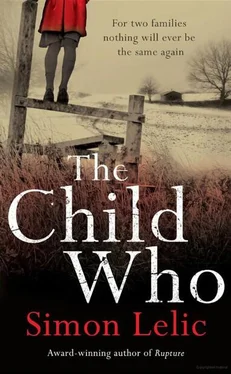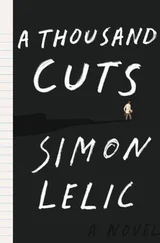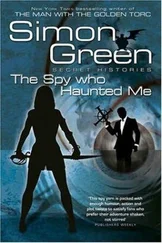At which point Leo had reclaimed his personal space. Shrugging off the man’s concern, as well as his incitement to press charges, he had made his way to the lavatories and escaped, after that, through a fire door. He was not quite sure where it had led him. Behind the car park, he reckoned: a concrete expanse walled by road noise and infused with the odour of the industrial-sized bins. Yet calm, too; calming. Wherever it was, it would do.
I’m not mental, he had said. I’m not and I’m not saying it.
There was a house, a hall, in the area of Reading in which Leo had grown up. It was flats now: overpriced and under-occupied, he had heard, which to Leo was hardly surprising. The building, before the renovation, had been an asylum. The high gates and imposing walls that now served to keep people out had been installed, initially, to keep them in. Who – in their right mind – would want to live there? Leo, his mates: when they were kids they would try to break in. Not really try because breaking in, actually, was the last thing they wanted to do. It was a terrifying place and that was the thrill: fear of what lay beyond. Manic laughter and swinging light bulbs. Baby-eaters, shit-throwers, shrinks. There was a prison close by too but the lure was barely as great. Prison, after all, was no big deal. Not compared to the alternative.
Leo tested the paper towel. It was stuck, just as he had feared. He tugged, gently, then harder, and winced the tissue from his face. He touched his cheek. His fingertip came away red. He tore a strip from the paper towel and applied it to the wound, as he would have had he sliced himself shaving. Would he get away with that, he wondered? Old razor, he could say. Ageing face.
He inhaled and pursed his lips and puffed until his lungs emptied. He felt, all of sudden, in violation, though of what he could not have said. There was work to be done, apart from anything. Yet he had no desire to return to the world, to forsake this unlikely oasis. And so he sat, alone, on a wall, wondering what on earth had just happened and failing, despite everything, to blame the boy.
They watched on the television.Megan, probably, would have liked to have gone. Ordinarily, at least. Leo, on the other hand, would rather have forsaken even the coverage. He had suggested it – started to – but it was not, apparently, up for debate. This was part of it, his wife’s expression had conveyed.
And so they watched, side by side but as far apart as their three-seater sofa would allow: Leo with paperwork balanced on the arm on his side, Meg with a box of tissues on the arm beside her. The curtains were drawn and Leo had resisted the urge to ask why. It seemed needless; superstitious, almost. Tokenism, in the harshest terms, much like the funeral itself. A ceremony for the sake of the living that would help, in Leo’s experience, only if one did not truly hurt.
He switched on the side light.
The anchor, on the television, was reaching for the weather. Already, only minutes into the broadcast. It was befitting, apparently, that it was so unseasonal – just as, Leo suspected, rain would have been, or a shroud of snow, or a furious, anguished wind.
It was a strange decision, he would have argued. Letting the world in when he, in the Forbes’s place, would have done what he could to shut it out. It seemed improper, somehow: turning the day into a public event. Although perhaps, given the attention their daughter’s death had received, they no longer had any choice. Even his father’s funeral, after all, had snowballed into something less than private. There had been relatives that Leo barely recognised, friends who had long since moved away – no one, other than Leo and his family, who had attended other than because they had felt obliged to. So maybe, in the circumstances, what the Forbes family was doing was brave. Maybe, actually, it was generous. More so, in retrospect, than Leo had managed to be.
The cortège, to the anchor’s commentary, diverted from the Exe and towards the High Street. There were even more onlookers along the route than had been expected; the pavements were clogged from doorway to drain. So much for the pundits’ predictions, that most would choose to mourn in private, in the consoling surround, as they had put it, of their homes. Probably they would prove wrong about the viewing figures, too. Six million would follow the coverage, they had estimated, in living rooms from Truro to Thurso.
Leo saw Megan glance over at him. Just a glance but he knew what it meant. Look, Leo. Look at the enormity of this.
It was astonishing, he had to concede, that one life should impact on so many. One death, rather; one manner of death. Twice now the anchor had made reference to the ‘depth of feeling’ and though Leo would have taken issue with the first aspect of the sentiment, there was no denying that the feeling was there. The weight of numbers, after all, was hard to ignore.
‘Is he watching this?’ said Megan. She spoke to the screen. ‘He should be made to.’
Leo glanced again. He said nothing.
The coverage cut from the procession to an air shot of Exeter cathedral. The building, a Gothic colossus that might have been constructed with just such an occasion in mind, was sited in a large open area behind the High Street, ringed by a cobbled lane and a grass verge that was popular, on a normal day, with sandwiching students. Today only a cordoned-off strip of ground was visible beneath the throng.
Leo reached for his paperwork. He set it on his lap. He felt Megan gauging him and stared at the topmost page as though reading it. He flipped over to the next sheet.
‘Who is this character?’ he said, not looking at the television but failing not to hear the talking head. ‘He sounds like he’s swallowed the Daily Mail .’ Every word spoken, every image cast, seemed also somehow a condemnation. They did not name names, of course. But the point was, they did not have to.
Megan gave a sob and Leo raised his head. What? he was about to say but then he saw.
Felicity’s family. The cortège had reached the cathedral and the passengers were unfolding from the cars. The uncles were out first, the voice-over said, fastening their jackets and fixing their expressions into frowns. They formed a perimeter, and only once it was secure did the aunts, under hats, follow. Next came the cousins and the grandparents, the children in unwashed black, the pensioners in fades of grey. They drew together, the generations, and moved with the cameras towards the foremost car.
There was a delay, long enough to cause a ripple. This – those within – was what everyone watching had been waiting for. The page in Leo’s hands drooped into his lap.
The door cracked and a foot appeared: a man’s lace-up, polished to a patent black. The gap widened and Felicity’s father followed. He was not a tall man but he unfurled himself to his full height, raising his chins and marshalling his shoulders. He faced out, and for a moment found the camera, but his expression did not alter and he turned back towards the car. He dipped and then withdrew and his sons, Felicity’s brothers, joined him on the cobblestones.
Even the youngest was a clenched fist taller than his father. The boys were fifteen and seventeen, Leo seemed to recall. Frederick, was it? And Francis? Names beginning with F, anyway, because it was one of the Forbes family’s idiosyncrasies that all the children had names that began with F. Both boys were blond, unlike Felicity, and Leo was reminded of an image from a few years before, of the princes beside their father at Diana’s funeral. The boys, like their royal counterparts, appeared composed but heartbreakingly so. Even the commentator seemed struck, for he fell silent. Not a conscious choice, Leo supposed, but the appropriate reaction nonetheless.
Читать дальше












